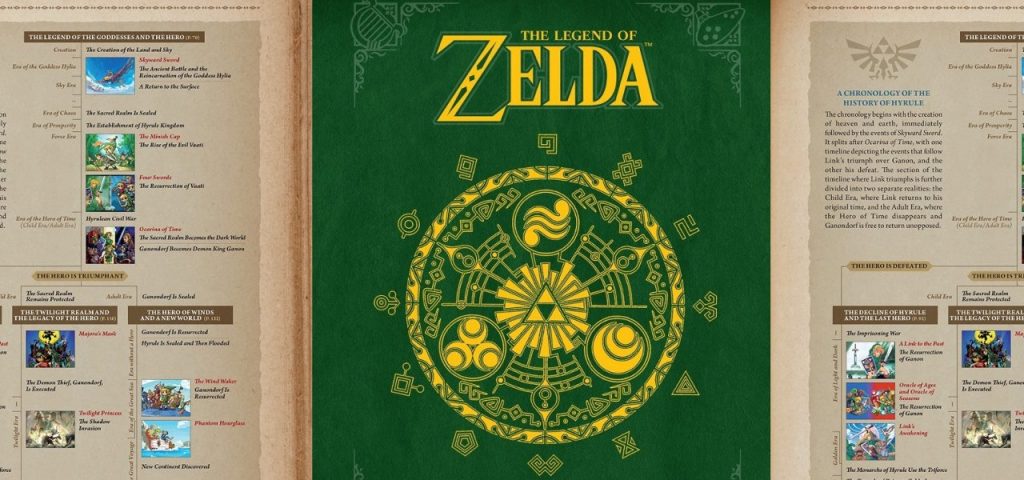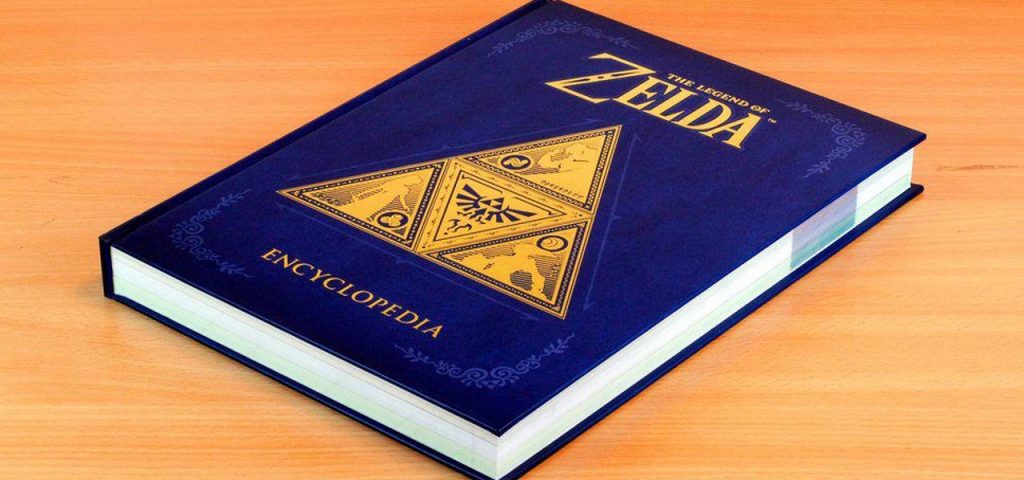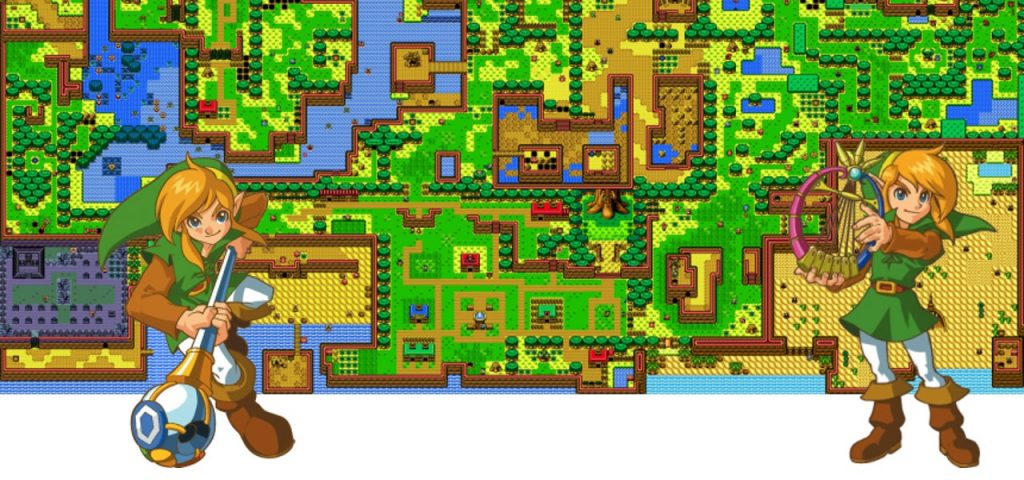Reconsidering The Oracle Games Within the Zelda Timeline
Posted on February 28 2021 by Charles Xavier

Whether you love or hate the official Zelda timeline, now that it exists, there is no going back. While fans can certainly choose to disregard it, I decided to embrace it. Both iterations of the timeline, and the books in which they were released, hold a plethora of interesting lore that I agree with. But in some cases, the timeline contains egregious errors.
The biggest culprit of making pointless changes to the lore comes from the Zelda Encyclopedia with its revised version of the timeline, specifically its change to the placement of the Oracle games. Ahead I will take a dive into the plot of the Oracle games to prove their original placement in the first version of the timeline, found in Hyrule Historia, is indeed correct.
The Oracle games in the Context of Hyrule Historia

The original release of the Zelda timeline positioned the Oracle games into the chronology exactly as most Zelda theorists agreed that it should: as a bridge between A Link to the Past and Link’s Awakening. The introduction to Link’s Awakening claimed Link went out to foreign lands to prevent new threats from arising in the wake of Ganon’s destruction; sounds a bit familiar, doesn’t it? He departed from those lands by sea, and that led into the events on Koholint Island.
The Oracle games are set in foreign lands where Link fights new villains, and stops a resurrection of Ganon. Plus, the linked ending of these games show Link departing out to sea on a boat very similar to the one from the opening cutscene of Link’s Awakening. So, from a cursory glance, the Oracle games seem to fill the gap between A Link to the Past and Link’s Awakening almost perfectly.
Additionally, the main fact in favor of this placement is largely based on the Triforce calling out to Link to send him on quests. Considering that at the end of A Link to the Past the Triforce recognizes Link as its master, its call only makes sense if we assume Oracle Link is the same person from A Link to the Past. If it was a different hero, how would the Triforce know to call out to him specifically? This has to be a Link that the Triforce is familiar with, and in the Downfall Timeline, there is only one hero who fits the bill: the one from A Link to the Past.
It all seemed rather cut and dry before the official timeline, and Hyrule Historia‘s version of things didn’t rock the boat in this regard. Then seven years later, Zelda Encyclopedia came along to topple all of this.
The Oracle Games in the Context of Zelda Encyclopedia

In a shocking turn of events, the second iteration of the timeline contained a revision placing the Oracle games after Link’s Awakening. Furthermore, it claimed that Oracle Link is an entirely different hero from the one in A Link to the Past and Link’s Awakening. The reasoning for this change was because, in the dialogue of the Linked Ending, Zelda appears to be unfamiliar with Link.
This change renders the Oracle games to a rather pointless status; being self-contained, they could be deemed non-canon in a third revision of the timeline and nothing important would be lost. The sad part is this scenario sounds better than leaving these games in a spot that feels wrong.
Coming after Link’s Awakening, featuring a new hero, in an era where the Triforce recognizes this Hero as its master, we must either disregard the interaction as coincidence, or assume this hero went on a unique journey in the past that required use of the Triforce. The latter would be the best solution; however, it’s unlikely. We know from A Link Between Worlds that not much time passed between it and A Link to the Past. In any case, if another hero went on a quest and used the Triforce, there is no reason for them to be obscured from history only a century or two later.
Mistranslations Are off the Table

For a long time, theorists, looking for some way to discredit Zelda Encyclopedia, began making some outlandish claims that have spread a lot of misinformation about the dialogue of these games. To be honest, before researching it for myself, I was under the impression that mistranslations could be the smoking gun in favor of Hyrule Historia‘s timeline, but it isn’t that simple. After consulting my colleague and good friend Dark Isatari, I was reassured that the official English translation of the game is not in error. Here is the dialogue in question:
“Thank you for rescuing me. My name is Zelda. You are Link, right? I knew it at first glance. Take this as thanks for rescuing me.” – Zelda
Theorists claim that in Japanese, “right” used in an instance such as this has a connotation of striking up small talk, and this could only be done if Zelda knew him. The issue is even though parts of the text can have slightly alternate translations, her introduction is non-debatable. As Dark Isatari says:
“While the nuance of that ‘right’ is as claimed (not so much a question as a ‘correct me if I’m wrong’), in the scene when Link rescues her between the second and third dungeons in linked Oracle of Seasons, she does clearly say, ‘my name is Zelda,’ and not, ‘it’s me, Zelda,’ or anything like that.
The second part could be translated, ‘I can tell just by looking at you,’ but given that this is taking place after Link saved Labrynna, I take that more to mean, ‘I recognize you as the Hero chosen by the Triforce,’ and not, ‘I recognize [you as] somebody I met before’.
She also clarifies that she left Impa’s care due to a bad dream, in which she saw Link being attacked by a great darkness, which would also explain how she recognized him, though not how she knew his name.
Dialogue for linked Oracle of Ages is similar, except for the line about the dream being instead just that she saw the land, ‘in despair and sorrow,’ and doesn’t mention Link.
The ending portion doesn’t contain [any] informative about Link and Zelda’s prior relationship at all, in my opinion.
I think the official translation is good, though the alternate translations you found work fine too. I really don’t agree that the ‘right’ is something she couldn’t say unless she previously knew Link, though. The key phrase for me is the ‘my name is Zelda’ line in both games when you first encounter her.” – Dark Isatari
There we have it. As convenient as it would be to blame it all on mistranslations, this is not a valid point in favor of Hyrule Historia‘s timeline. That said, there is also an error within the English version of Zelda Encyclopedia that states the Link in the Oracle games is the one from A Link to the Past, while in the Japanese version of the book the inverse is true. This is also not solid evidence considering the update of the timeline page; so the English translation here is wrong, but it is not in our favor for it to be.
The Actual Oversight of Zelda Encyclopedia

Since the fate of the Oracle games rest on semantics, we must be mindful that this is extremely treacherous ground. While Zelda does clearly introduce herself to Link, there comes a point where a player must accept that some ludo-narrative dissonance is going on. Zelda’s introduction is a courtesy to new players, not some calculated plot point.
In Phantom Hourglass, the opening sequence features Niko recapping the events of The Wind Waker to Link as if Link wasn’t there, but this didn’t spur a change in its placement – this is Zelda Encyclopedia‘s biggest oversight. If the Oracle games were moved because a character Link should know introduced themselves, then any similar instance of this with other games must also be reconsidered. Is Phantom Hourglass‘ opening recap worth changing its placement over? Apparently not, so any argument that Zelda’s introduction is valid reason to justify moving the Oracle games is flawed.
From a narrative standpoint, there is absolutely no reason why the Oracle games should be moved from their original placement in the timeline from Hyrule Historia. The Oracle games were originally going to be a mere port of the original Legend of Zelda; this eventually shifted to the commission of new games, and assets were re-used from Link’s Awakening to make them. Considering how closely the developers were drawing from Link’s Awakening, I find it unfathomable that there isn’t some loose narrative connection between them.
Conclusion

The state of the official timeline is currently up in the air; with Breath of the Wild in a position to effectively soft-reboot it, players could once again have the liberty to theorize on the placement of any future games. If this is what Nintendo goes along with, the extent of updates to the official timeline will end Zelda Encyclopedia‘s interpretation. This would be unfortunate, but there is some solace to be found. All of the Goddess Trilogy books are only loose expansions of Zelda lore. Zelda Encyclopedia‘s Preface states:
“Where necessary, the writers of this book added their own interpretations and expanded upon the games’ stories.”
Such liberties which were taken are blatant, and the change with the Oracle games is probably one of them. I’d rather stick to the in-game implications than take the word of a book that adopts head-canon at points, and luckily I can. On the timeline page of the book, there is a side note addressing the change of the Oracle games:
“Attentive readers may note that the timeline shown here differs slightly from the one found in Hyrule Historia. The timeline can be interpreted in a number of ways, and may change depending on new discoveries that have come to light and on the players’ imaginations.” – Zelda Encyclopedia, Pg. 10
This passage is an admission that the timeline might be imperfect and that it has potential to change again; the factors that will change it are the expansions of lore in new games, and the way a majority of fans want to perceive the timeline. Essentially, nothing is set in stone for the timeline, and this also gives power back to the fans to theorize freely on it. Consider the official timeline from this point on as a suggested template for the lore, not a reason to refrain from scrutinizing and changing it to test if it can be better. If enough of us collectively agree the Oracle games are better as they were in Hyrule Historia, there is hope for the future!
Where do you see the Oracle games in the Zelda timeline? Do you agree with their placement in Hyrule Historia, or the Zelda Encyclopedia? Share your thoughts with us in the comments!
Translations provided by Dark Isatari
Charles is a Senior Editor at Zelda Dungeon. He is a massive fan of Star Wars, The Lord of the Rings, and Marvel Comics. He enjoys Skittles immensely. Shigittyshwa!

Charles is a Senior Editor at Zelda Dungeon. He is a Visual Development artist focused on enviroments and pitch paintings. Check out his Instagram and Twitter to see his latest artworks, a lot of which is Zelda fan art! His favorite candy is Skittles – he feels the world should know this.



